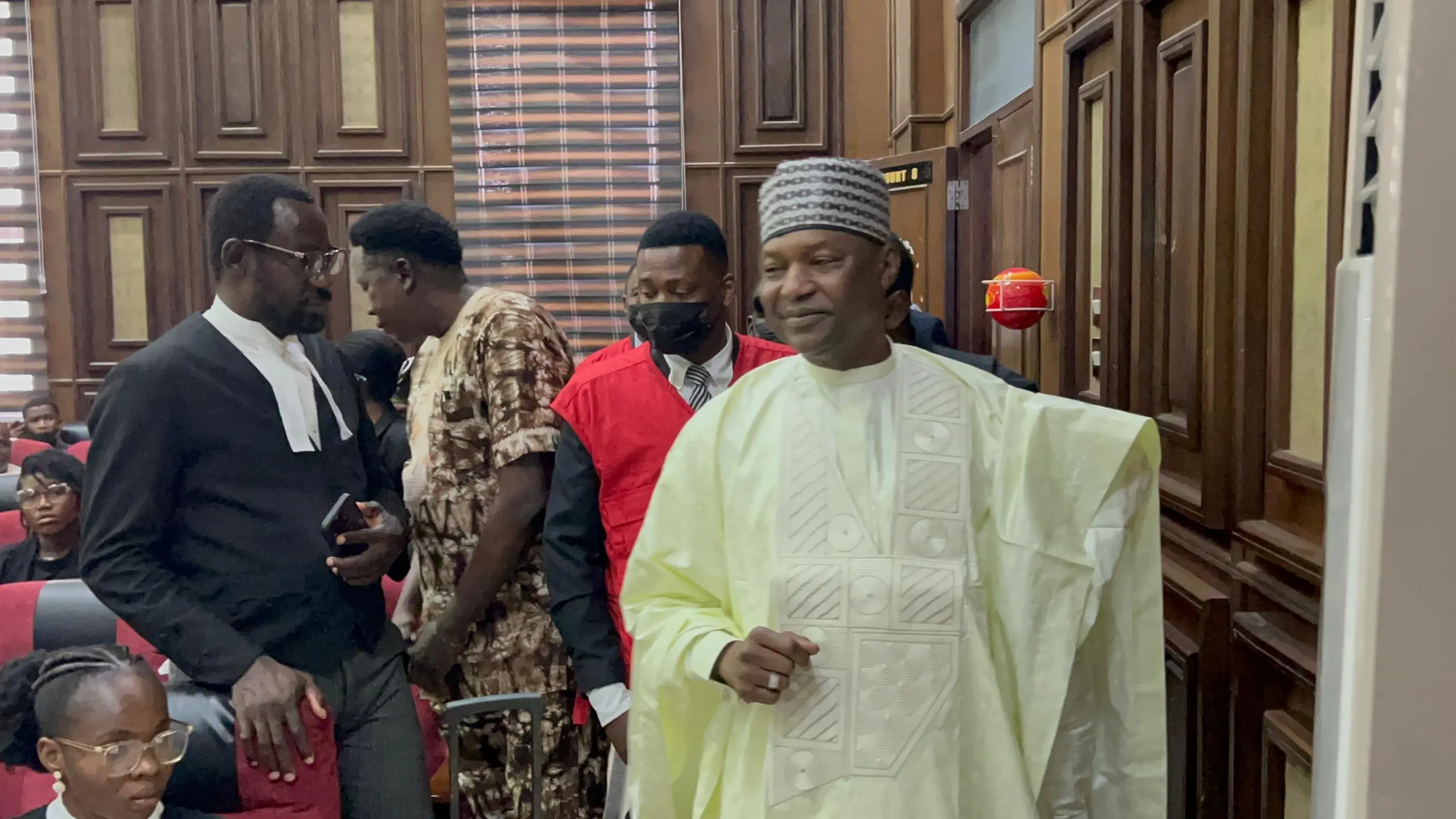General
The New Rules of Diversification: Nigerian Portfolios Going Global with Real Assets

For decades, Nigerian investors have navigated economic uncertainty by leaning into familiar instruments—government bonds, blue-chip equities, fixed deposits, and, when necessary, cash-heavy real estate holdings in urban centres like Lagos and Abuja. But as persistent naira depreciation, foreign exchange restrictions, and inflation continue to erode the value of localized wealth, a structural recalibration is taking place.
High-net-worth individuals and savvy middle-class earners are increasingly broadening their investment mandates—both geographically and tactically—as diversification becomes central to wealth preservation. With Nigeria absent from recent rankings of the safest countries for foreign investment, investors are reevaluating their asset geography in pursuit of long-term resilience. While domestic assets remain foundational, there’s a rising preference for tangible, globally situated real estate as a diversification hedge against currency instability and policy unpredictability at home.
The Lagos Baseline: Holding the Fort at Home
For many, Lagos remains a primary node in their portfolio matrix. The commercial capital’s mix of residential estates, commercial high-rises, and industrial land makes it a flexible yet familiar terrain. More importantly, it serves a strategic purpose: anchoring wealth in a city whose property market, though cyclical, is backed by population momentum and urban expansion.
Emerging neighbourhoods such as Ibeju-Lekki, Sangotedo, and parts of Ikeja are drawing interest from investors seeking land banking opportunities or rental yields driven by demand for mixed-use developments. Lagos real estate listings highlight the breadth of available options, ranging from high-rise condos to gated duplexes—each representing a physical hedge in an increasingly intangible economy.
Dollarization via Miami: Strategic International Real Assets
Yet for investors with greater liquidity and international access, the pivot isn’t just away from Nigeria—it’s toward the dollar. Miami, with its dual appeal as both a financial hub and a lifestyle destination, is proving magnetic.
What makes Miami compelling isn’t just its luxury condos or beachfront appeal. It’s that U.S. real estate offers a dollar-denominated refuge from the naira’s fluctuations—serving as a practical vehicle for international diversification. Additionally, for families contemplating eventual relocation, education abroad, or second citizenship programmes, these purchases function as both lifestyle enablers and capital stabilizers.
According to trends tracked across urban housing markets, buyers from emerging economies—including Nigeria—are concentrating their purchases in areas with strong rental potential and limited inventory, ensuring asset appreciation over the medium term.
Beyond the Coasts: Asset Preservation in Middle America
Interestingly, a subset of Nigerian investors is eschewing high-profile cities altogether in favour of quieter, more affordable locations that offer consistent returns. Cities across the American Midwest, such as those in Iowa, have come under the radar—not because they are flashy, but because they are stable.
In North Iowa, for example, property values remain accessible, rental demand is steady due to regional employment centres, and ownership costs are comparatively low. For Nigerian investors seeking capital preservation over speculative upside, realty options in North Iowa are offering a compelling entry point into the U.S. housing market with reduced exposure to volatility.
What’s more, ownership in such secondary markets often comes with fewer regulatory frictions, easier financing structures, and lower ongoing tax burdens—all attractive attributes when managing foreign assets from afar.
Toronto’s Pipeline Approach: Building Equity into the Future
Canada, too, has found favour among Nigerian investors—but for a different reason. In Toronto, the appeal lies not just in what exists, but in what’s coming. The city’s pre-construction ecosystem allows investors to “reserve” property in future towers or communities years in advance, often with staggered payments and no immediate mortgage burden.
This model resonates with Nigerian buyers looking to hedge against inflation over the long term. By securing a property today at a fixed price—even if delivery is 3 to 5 years out—they effectively lock in value before inflationary pressure takes its toll.
Several upcoming residential projects in Toronto are offering buyers phased payment plans and forward-booking incentives—early-access investment opportunities that align with broader diversification strategies among Nigerians planning long-term capital deployment abroad.
Additionally, as Nigeria tightens capital controls, the gradual payment model allows capital to be moved abroad legally and incrementally, avoiding the shock of a lump-sum transfer or FX squeeze.
Strategic Asset Dispersion: Beyond Bricks and Mortar
This shift toward physical international assets isn’t merely about building wealth—it’s about preserving sovereignty over it. As trust in local financial systems ebbs and inflation eats into fixed-income earnings, the desire to hold assets in politically and economically stable jurisdictions has grown stronger.
Real estate, unlike equities or mutual funds, also offers non-financial benefits: immigration pathways, educational positioning, or even strategic relocation plans. These auxiliary gains are becoming part of the investment rationale, especially for Nigerians anticipating longer-term life transitions.
Conclusion: Real Estate as the New Reserve
In many ways, today’s Nigerian investor is not just seeking yield. They’re seeking resilience. They are de-risking against monetary policy shifts, diversifying across currency zones, and positioning assets in globally relevant geographies.
Domestic holdings in Lagos will likely remain foundational. But increasingly, they are being complemented—sometimes outweighed—by targeted investments in North America’s most resilient housing corridors. Whether through speculative future builds in Toronto, turnkey units in Miami, or quiet equity compounds in North Iowa, real estate is proving itself a globally portable store of value.
In a landscape where the rules of wealth preservation are being rewritten, owning a piece of the world—literally—may be the most strategic move of all.
General
NISO Attributes Electricity Woes to Inadequate Gas Supply

By Adedapo Adesanya
The Nigerian Independent System Operator (NISO) has attributed the poor power supply facing a considerable number of Nigerians to inadequate gas supply to thermal power plants.
Business Post reports that epileptic power supply has plagued consumers in Lagos, Oyo, Abuja, and Osun, among others, this month, leading to worries. Also, some businesses have recorded losses due to the epileptic power supply in their areas.
In a statement posted on its X handle, NISO disclosed that average available generation on the national grid currently stands at about 4,300 megawatts (MW), with the low output primarily attributed to gas supply constraints.
The system operator noted that thermal power plants, which account for the dominant share of Nigeria’s electricity generation mix, require an estimated 1,629.75 million standard cubic feet (MMSCF) of gas per day to operate at optimal capacity. However, as of February 23, 2026, actual gas supply to the plants was approximately 692.00 MMSCF per day.
The available supply represents less than 43 per cent of the daily gas requirement, resulting in constrained generation output and reduced electricity allocation to Distribution Companies (DisCos).
NISO, which independently manages the nation’s electricity grid, explained that any disruption or limitation in gas supply directly affects available generation capacity and overall grid output, given the heavy reliance on thermal plants.
It added that when total system generation drops significantly, the operator is compelled to implement load shedding across the network while dispatching available energy in line with allocation percentages approved under the Multi-Year Tariff Order (MYTO) framework of the Nigerian Electricity Regulatory Commission (NERC), to maintain grid stability and prevent system disturbances.
While expressing regret over the inconvenience to electricity consumers and market participants, NISO said it is working closely with relevant stakeholders to restore full energy allocation once gas supply improves and generation capacity returns to normal levels.
General
EFCC Re-Arraigns ex-AGF Malami, Wife, Son Over Alleged Money Laundering

By Adedapo Adesanya
The Economic and Financial Crimes Commission (EFCC) has re-arraigned former Attorney-General of the Federation (AGF), Mr Abubakar Malami (SAN), his wife, Mrs Asabe Bashir, and son, Mr Abdulaziz Malami, on money laundering charges.
They were brought before Justice Joyce Abdulmalik of the Federal High Court in Abuja, following the re-assignment of the case to the new trial judge.
Upon resumed hearing, EFCC’s lawyer, Mr Jibrin Okutepa (SAN), informed the court that the matter was scheduled for defendants’ re-arraignment.
“The matter is coming before your lordship this morning for the very first time. I will be applying for the plea of the defendants to be taken,” he said.
Mr Okutepa equally applied that the sums listed in Counts 11 and 12 be corrected to read N325 million instead of N325 billion for Count 11, and N120 million instead of N120 billion for Count 12.
When it was not opposed by the defence lawyer, Mr Joseph Daudu (SAN), Justice Abdulmalik granted the oral application by Mr Okutepa.
The defendants, however, pleaded not guilty to the 16 counts preferred against them by the anti-graft agency bordering on money laundering.
Justice Obiora Egwuatu had, on February 12, withdrawn from the case shortly after the civil case filed by the EFCC was brought to him.
The case was formerly before Justice Emeka Nwite, who sat as a vacation judge during the Christmas/New Year break.
After the vacation period, the CJ reassigned the cases to Justice Egwuatu, who had now recused himself, before it was reassigned to Justice Abdulmalik.
The former AGF, his wife, and son were earlier arraigned before Justice Nwite on December 30, 2025.
While Malami and his son were remanded at Kuje Correctional Centre, Asabe was remanded at Suleja Correctional Centre before they were admitted to N500 million bail each, on January 7, with two sureties each in the like sum.
General
INEC Shifts 2027 Presidential, N’Assembly Elections to January 16

By Adedapo Adesanya
Nigeria will hold next year’s presidential and National Assembly elections a month earlier than planned, after the Independent National Electoral Commission (INEC) revised the polling schedule.
The elections will be held on January 16, instead of the previously announced date of February 20, INEC said in an X post, signed by Mr Mohammed Kudu Haruna, National Commissioner and Chairman, Information and Voter Education Committee.
There were also changes to the Governorship and State Houses of Assembly elections initially fixed for Saturday, March 6 2027, in line with the Electoral Act, 2022, have now been moved to Saturday, February 6, 2027.
The electoral commission said the changes were caused by the enactment of the Electoral Act, 2026 and the repeal of the Electoral Act, 2022, which introduced adjustments to statutory timelines governing pre-election and electoral activities.
“The Commission reviewed and realigned the schedule to ensure compliance with the new legal framework,” it said.
INEC said party primaries (including resolution of disputes) will commence on April 23, 2026 and end on May 30, 2026, after which Presidential and National Assembly campaigns will begin on August 19, 2026, while Governorship and State Houses of Assembly campaigns will begin on September 9, 2026.
It noted that campaigns will end 24 hours before Election Day, and political parties have been advised to strictly adhere to the timelines.
INEC also stated it will enforce compliance with the law.
The electoral body also rescheduled the Osun Governorship election which was earlier scheduled for Saturday, August 8 2026, by a week to Saturday, August 15, 2026.
INEC noted that some activities regarding the Ekiti and Osun governorship elections have already been conducted, and the remaining activities will be implemented in accordance with the Electoral Act, 2026.
Speaking at a news briefing in Abuja two weeks ago, the chairman of INEC, Mr Joash Amupitan, expressed the readiness of the commission to conduct the polls next year.
The timetable issued by the organisation for the polls at the time came when the federal parliament had yet to transmit the amended electoral bill to President Bola Tinubu for assent.
Later that week, the Senate passed the electoral bill, reducing the notice of elections from 360 days to 180 days, while the transmission of results was mandated with a proviso.
-

 Feature/OPED6 years ago
Feature/OPED6 years agoDavos was Different this year
-
Travel/Tourism10 years ago
Lagos Seals Western Lodge Hotel In Ikorodu
-

 Showbiz3 years ago
Showbiz3 years agoEstranged Lover Releases Videos of Empress Njamah Bathing
-

 Banking8 years ago
Banking8 years agoSort Codes of GTBank Branches in Nigeria
-

 Economy3 years ago
Economy3 years agoSubsidy Removal: CNG at N130 Per Litre Cheaper Than Petrol—IPMAN
-

 Banking3 years ago
Banking3 years agoSort Codes of UBA Branches in Nigeria
-

 Banking3 years ago
Banking3 years agoFirst Bank Announces Planned Downtime
-

 Sports3 years ago
Sports3 years agoHighest Paid Nigerian Footballer – How Much Do Nigerian Footballers Earn













